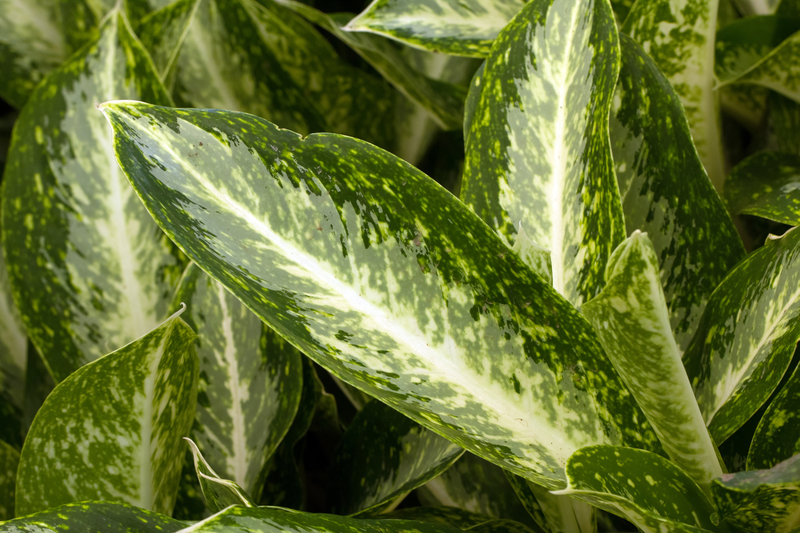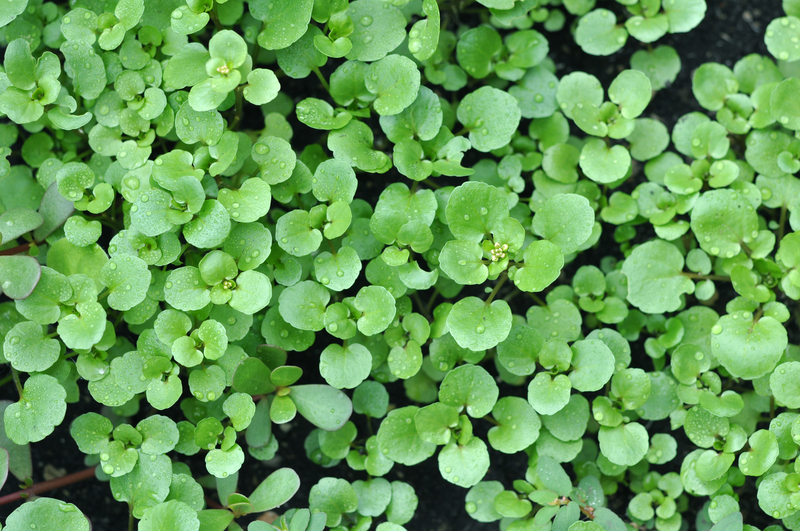Essential Tips to Start Your Gardening Adventure with Confidence
Posted on 22/06/2025
Essential Tips to Start Your Gardening Adventure with Confidence
Embarking on a gardening journey can be both exciting and a bit intimidating, especially for beginners. Whether you have a sprawling backyard or a small apartment balcony, growing your own plants offers countless benefits--fresh produce, improved mental health, and a beautiful space to relax. In this comprehensive guide, you'll discover a range of proven tips to start your gardening adventure with confidence. Let's delve into the secrets of successful gardening so you can nurture your green thumb with assurance.

Why Begin Your Gardening Adventure?
Gardening is more than just a hobby--it's a life-enriching activity that brings joy, health, and sustainability into your life. Here are a few compelling reasons to start your gardening journey:
- Improved mental health: Spending time in nature reduces stress and enhances mood.
- Fresh, organic food: Grow your own herbs, fruits, and vegetables right at home.
- Sustainability: Cultivating plants helps reduce your carbon footprint and supports local biodiversity.
- Learning opportunity: Gain new skills and connect with fellow gardeners in your community.
Choosing the Right Gardening Style
Before you start planting, it's important to understand the various types of gardening available. Consider your available space, lifestyle, and preferences. The most popular gardening approaches include:
- Container gardening: Ideal for small spaces like balconies or patios.
- Raised bed gardening: Perfect for those who want better soil control and easier access.
- Traditional in-ground gardening: Suitable for larger yards and those seeking a classic experience.
- Vertical gardening: Great for maximizing space and adding visual interest.
Selecting the right method ensures you start your gardening adventure confidently and set yourself up for success.
1. Assess Your Gardening Space
A crucial first step in your garden planning is evaluating your available space. Take note of the following factors:
- Sunlight exposure: Observe how many hours of sunlight your garden area receives daily.
- Soil condition: Test your soil for drainage, pH level, and nutrient content.
- Accessibility: Make sure you can easily reach all plants for watering, pruning, and harvesting.
Tip: If you're tight on space, don't let it stop you! Containers, hanging planters, and window boxes can help you start small while still enjoying lush, thriving plants.
2. Start with Easy-to-Grow Plants
Building confidence is essential when you're new to gardening. Choose plants known for being low-maintenance and forgiving. Some beginner-friendly options include:
- Herbs: Basil, mint, parsley, and chives are great for pots or garden beds.
- Leafy greens: Lettuce, spinach, and kale grow quickly and require minimal care.
- Annuals: Sunflowers, marigolds, and zinnias bring color and cheer to your space.
- Root vegetables: Radishes and carrots are easy to plant directly from seed.
Starting simple helps you develop essential gardening skills and build your gardener's confidence before moving on to more challenging plants.
3. Gather the Right Tools for Your Garden
Using proper gardening tools makes every task easier and more enjoyable. Invest in high-quality basics, including:
- Hand trowel
- Pruning shears
- Watering can or hose with an adjustable nozzle
- Gardening gloves
- Garden fork or spade
Proper care and cleaning of your tools will keep them in good condition and ensure your gardening adventure goes smoothly from the start.
4. Get to Know Your Soil
Healthy soil is the foundation of any thriving garden. Spend time learning about your garden's soil and how to improve it:
- Perform a soil test: Many garden centers sell affordable testing kits.
- Add organic matter: Compost, decomposed leaves, and manure boost soil fertility.
- Mulch: Covering soil with mulch helps retain moisture, reduce weeds, and regulate temperature.
Don't overlook the importance of soil health--investing time here pays off with lush, robust plants throughout your gardening journey.
Soil-Friendly Gardening Tips
- Rotate crops: Change plant locations each year to prevent nutrient depletion and disease spread.
- Avoid chemical fertilizers: Use natural compost and organic amendments for a sustainable start.
- Remember earthworms: Their presence indicates healthy, aerated soil.
5. Plan Your Garden Layout Carefully
Smart garden planning leads to better plant growth and reduces maintenance. Think about:
- Companion planting: Some plants, like tomatoes and basil, do well together and defend against pests.
- Spacing: Follow seed packet recommendations--it prevents overcrowding and encourages airflow.
- Sun vs. shade: Place sun-loving plants in the brightest spots, shade-tolerant varieties in sheltered areas.
A well-structured layout minimizes potential problems and maximizes the beauty and health of your evolving garden.
6. Water Wisely with Consistency
Watering might seem simple, but it's a skill every confident gardener must master. Here's how:
- Water deeply, not just superficially: Deep watering encourages strong, healthy root systems.
- Adjust to weather: More water may be needed during hot, dry spells, and less after rainfall.
- Morning is best: Water early to minimize evaporation and fungal diseases.
- Check soil moisture: Avoid overwatering by feeling the soil before you water.
Remember: Healthy watering habits mean fewer problems and happier plants, keeping your gardening adventure worry-free.
7. Learn the Basics of Plant Nutrition
Like people, plants need nutrients to thrive. Understanding plant nutrition ensures robust growth and high yields:
- Nitrogen: Promotes leafy growth--essential for greens and many herbs.
- Phosphorus: Important for root and flower development.
- Potassium: Strengthens plant health and resistance to disease.
- Micronutrients: Ensure overall vigor; add compost or balanced fertilizer as needed.
Regularly feeding your plants with organic fertilizers boosts confidence and ensures your efforts are rewarded with gorgeous, healthy plants.
Fertilizing Tips for Beginner Gardeners
- Start with compost: Rich in a variety of nutrients and improves soil structure.
- Use slow-release fertilizers: They provide steady nutrition over time.
- Read labels: Follow application instructions to avoid under or overfeeding.
8. Monitor Pests and Diseases Proactively
Even the most experienced gardeners encounter pests or diseases. Stay vigilant and manage issues early with these tips:
- Inspect plants: Look for signs of damage or discoloration while watering.
- Encourage beneficial insects: Ladybugs and lacewings naturally reduce aphids and other pests.
- Use organic solutions: Neem oil, insecticidal soap, and handpicking help control problems safely.
- Remove affected leaves: Dispose of diseased plant material to prevent spread.
Knowledge, persistence, and preventative care are the keys to overcoming garden challenges and keeping your gardening experience positive and enjoyable.
9. Don't Be Afraid to Experiment and Learn
The most successful gardens are born from curiosity and hands-on experience. Embrace mistakes as valuable learning opportunities, and don't hesitate to try:
- Growing new plant varieties each season
- Experimenting with different layouts
- Exploring new gardening methods, like hydroponics or permaculture
- Joining local gardening clubs for support and inspiration
The more you experiment, the more confident and skilled you'll become on your gardening adventure.
Resources for Continuous Learning
- Books: Borrow gardening guides from your local library or read trusted gardening websites.
- Workshops and classes: Take part in community gardening workshops for hands-on experience.
- Online forums: Connect with other gardeners for advice and inspiration.
10. Celebrate Every Gardening Success
Nothing boosts gardening confidence like witnessing your plants thrive. Celebrate milestones on your journey:
- Enjoy your first harvest of herbs or vegetables
- Share blooms or produce with friends and family
- Document your progress with photos and notes in a garden journal
Recognizing progress, however small, keeps your passion alive and fuels your gardening adventure for years to come.

Conclusion: Embark on Your Gardening Adventure Today with Confidence!
Starting a garden doesn't have to be overwhelming. By embracing these essential gardening tips for beginners, you'll cultivate not only beautiful plants but also a sense of accomplishment and joy. Remember to assess your space, start with easy plants, invest in proper tools, nurture your soil, plan wisely, and always be open to learning.
With patience, passion, and practicality, you'll forge a rewarding gardening adventure filled with growth--both literally and figuratively. It's time to dig in and let your gardening journey flourish!
Frequently Asked Questions about Starting a Gardening Adventure
What is the best time of year to start a garden?
The ideal time to begin your garden is typically in the spring, after the last frost. However, container gardening or indoor plant projects can be started year-round.
Do I need a lot of space to garden?
No! Container gardening and vertical gardening are excellent for those with limited space. A sunny windowsill, balcony, or small patio is enough to start your first gardening project.
How can I avoid beginner mistakes?
Research your chosen plants' needs, start small, and don't hesitate to ask for advice from local garden centers or experienced gardeners. Patience and observation are key.
What are some easy vegetables for first-time gardeners?
Try growing lettuce, radishes, carrots, beans, and herbs like basil and chives. These are known for being resilient and rewarding for beginners.
How can I make my gardening more sustainable?
Use organic compost, avoid chemical pesticides, collect rainwater, and plant native species. These practices support both your garden and the environment.
Ready to start your gardening adventure with confidence? Implement these tips and watch your gardening skills--and your garden--grow!
Latest Posts
Transform Your Windy Garden into a Serene Oasis
Garden Resurrection: Breathing New Life into Neglect
Designing an Engaging Outdoor Haven for Kids

